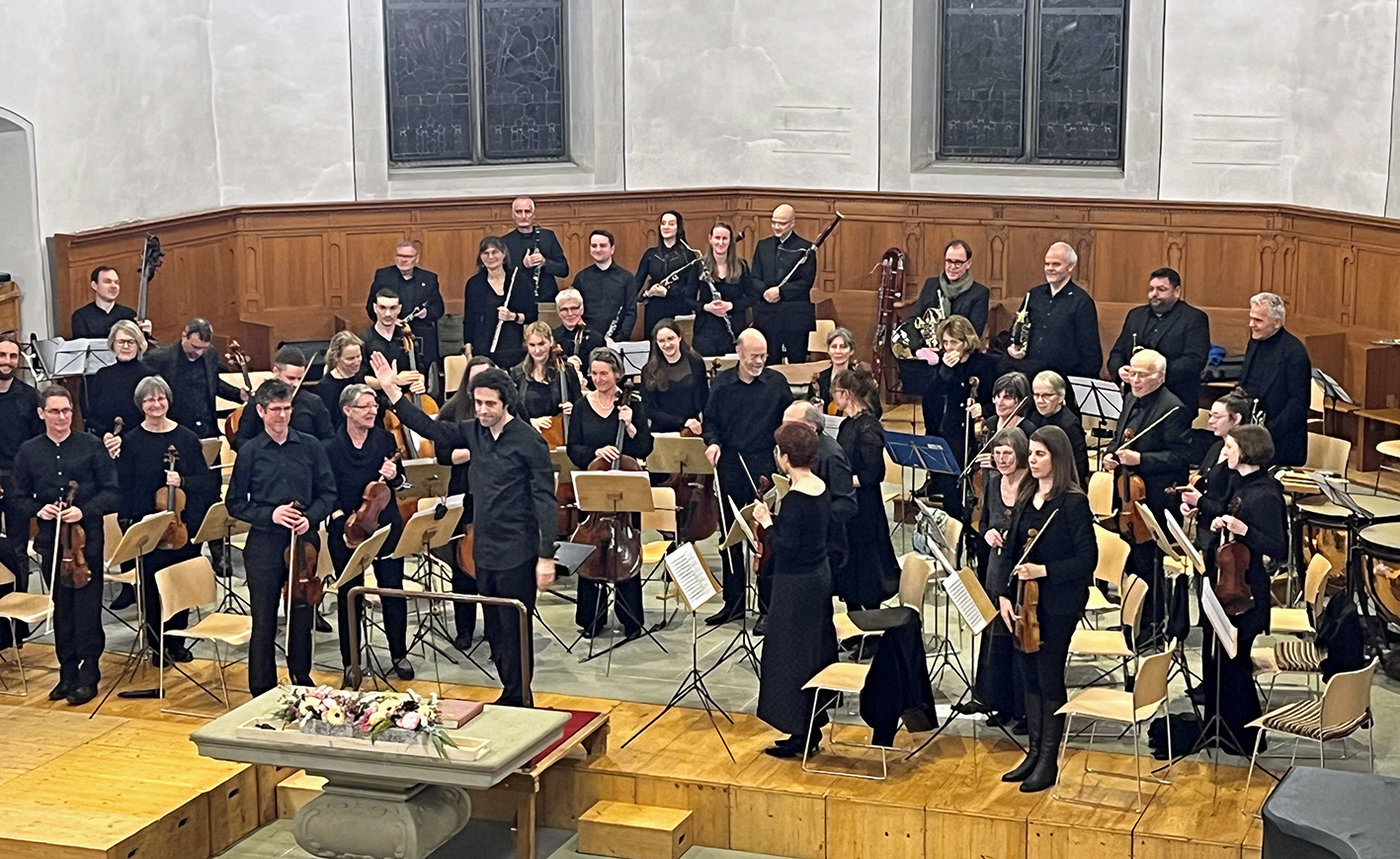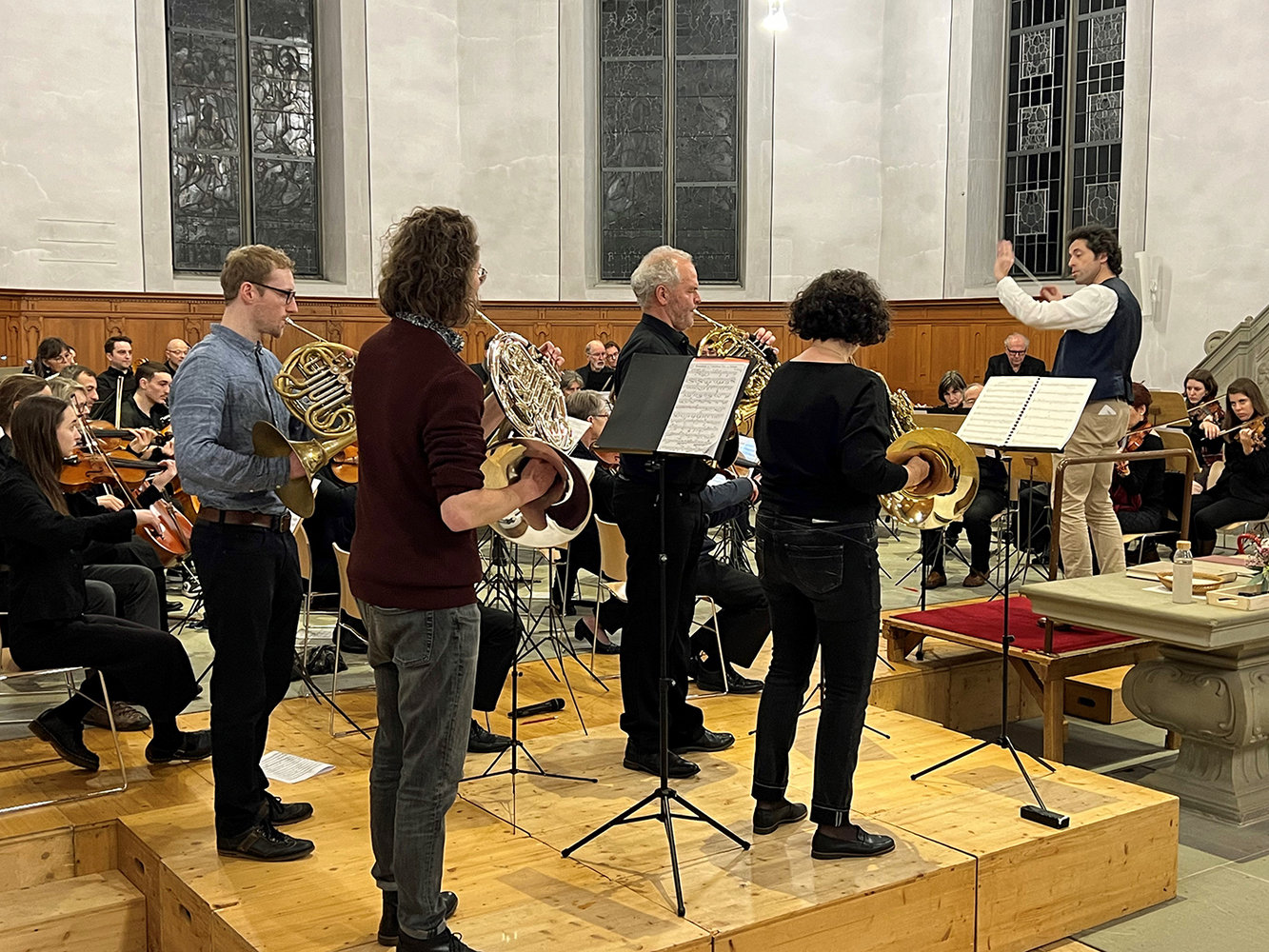Beethoven lives in the Emmental
The Langnau orchestra consists mainly of amateurs. They not only manage their traditional ensemble themselves, they also successfully perform ambitious works.

The Emmental is associated with cheese, sumptuous cuisine in country inns and Jeremias Gotthelf. But not necessarily Beethoven. Yet in Langnau, a main town in the Emmental with around 9,000 inhabitants, there is currently a Beethoven cycle with all of his symphonies, which will be performed in 2027, the bicentenary of the composer's death, with the Ninth will end. This ambitious project will not be performed by guest orchestras, but by the Langnau orchestraa formation of highly motivated amateurs.
The artistic level is astonishingly high and refutes the opinion that a Beethoven symphony is only for highly subsidized orchestras and people who easily pay 300 francs for the Berlin Philharmonic Orchestra in Lucerne. Langnau is proof that you can also have it in the village. A small slip-up here or a hesitant effort there is irrelevant, the joy of playing makes up for the lack of technical excellence. The monumental Eroicawhich was on the program a year ago, was probably the ultimate baptism of fire for the orchestra in dealing with Beethoven's orchestral technique and decisively advanced it on the way to the characteristic "Beethoven tone".
Fearless concert programs
The programs, which are put together by conductor Christoph Metzger in consultation with the orchestra, make some municipal philharmonic orchestras look old with their impartiality. A year ago, the Eroica a contrasting program with Mauricio Kagel's Ten marches to fall short of victoryand now, at the beginning of February, the Fourth in an attractive combination with the Concert piece for four horns and orchestra by Robert Schumann and the six piano songs op. 13 by Clara Schumann, orchestrated by Masayuki Carvalho. Jeannine Nuspliger found the right tone for the romantic expressive world of the songs, which were composed in the first years of her marriage to Robert Schumann, with a beautifully rounded soprano. The mighty horn quartet in Schumann was led by Hans Stettler, a member of the orchestra for fifty years now; the other three were newcomers.
Solid finances from our own resources
Stettler is also President of the Langnau Concert Society and responsible for organizing the concerts - the orchestra manages itself, there are no paid employees. The orchestra also stands on its own two feet financially, and there is no whining about a lack of subsidies. The musicians are members of the association and pay an annual fee of two to four hundred francs - or more if they wish. Students pay twenty francs a year. There are also many passive members. This covers the operating costs, which are kept low, and the fees of the conductor and concertmaster. The concert income is used to finance the project, including the soloists. The municipality also pays the concert association, under whose umbrella the orchestra, the concert choir and a chamber music series are located, 15,000 francs a year as part of a service contract. Sponsors are rather cautious and prefer to rely on donations from patrons, who then also attend the concerts in the packed Langnau church.
Conductor's stroke of luck
The self-confidence with which music is made in Langnau is impressive. You feel part of an old tradition. The orchestra was founded in 1866, two years before the Zurich Tonhalle Orchestra, and celebrated its 150th anniversary eight years ago. The musicians identify strongly with the orchestra, not least thanks to Christoph Metzger, the artistic director since 2006. "We've never had a conductor with such pedagogical expertise," says Hans Stettler, "he gives us the confidence we need, even for the difficult things." The number of members has grown steadily with him, especially among the wind players. Viola player Marianne Etter-Wey, Head of School and a member for over twenty years, adds: "It's incredibly stimulating to work with Christoph Metzger. You learn a lot and the atmosphere is excellent. Our orchestra motto 'Emotion before perfection' sums it up perfectly."
For her, as for many others, the weekly rehearsals are a welcome counterbalance to her everyday working life, especially with the demanding repertoire, which ranges from Bach's passions to the Third from Brahms to Verdi's Requiem and Le Roi David by Arthur Honegger. And experiments such as with Kagel make for great fun. Thanks to the cooperation with the local music school, there are no problems with recruiting young talent, as the most talented can grow into the orchestra in the long term.
It is healthy structures that keep the Langnau orchestra alive. The basis is formed by clear conditions, solid management, personal commitment and the joy of making music: High culture, grounded in civic democracy. One involuntarily thinks of the dangerous crises of legitimacy to which the institutions in the large centers are exposed, and one catches oneself thinking that the Langnau model could perhaps be more important for the survival of our music than the high-gloss operations in the metropolises that are geared towards top-class consumption.









